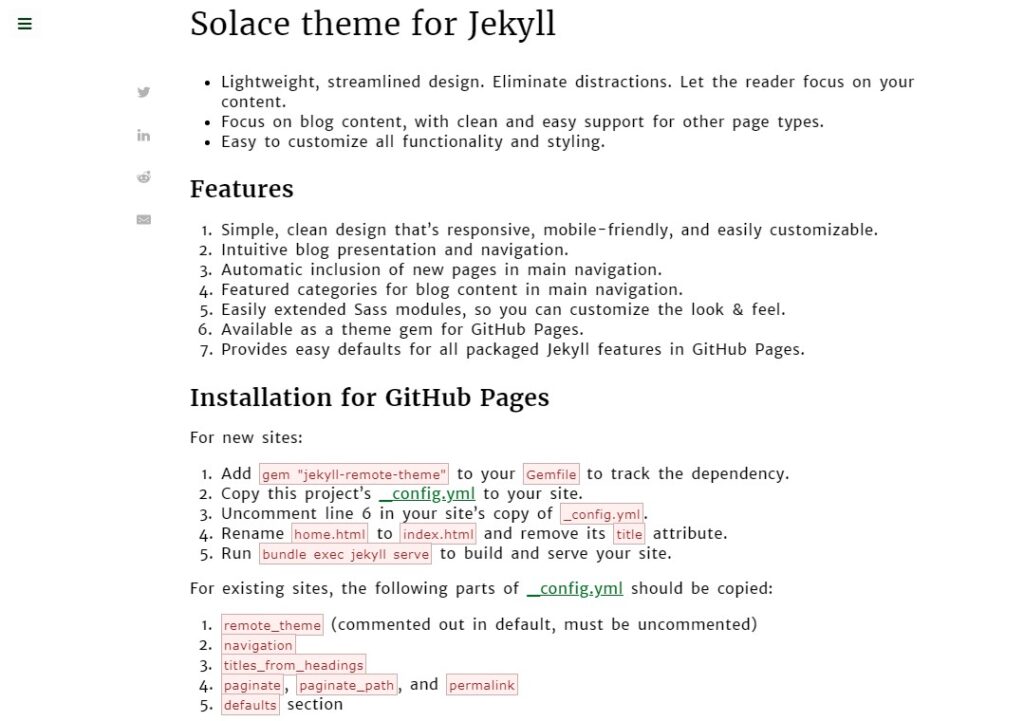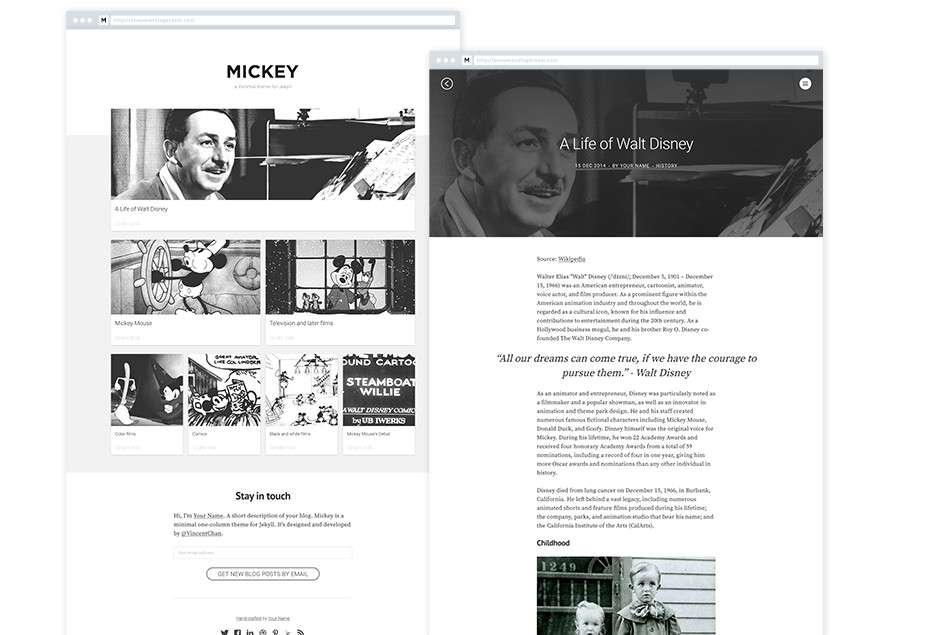Solace theme for Jekyll
- Lightweight, streamlined design. Eliminate distractions. Let the reader focus on your content.
- Focus on blog content, with clean and easy support for other page types.
- Easy to customize all functionality and styling.
Features
- Simple, clean design that’s responsive, mobile-friendly, and easily customizable.
- Intuitive blog presentation and navigation.
- Automatic inclusion of new pages in main navigation.
- Featured categories for blog content in main navigation.
- Easily extended Sass modules, so you can customize the look & feel.
- Available as a theme gem for GitHub Pages.
- Provides easy defaults for all packaged Jekyll features in GitHub Pages.
Installation for GitHub Pages
For new sites:
- Add
gem "jekyll-remote-theme"to yourGemfileto track the dependency. - Copy this project’s _config.yml to your site.
- Uncomment line 6 in your site’s copy of
_config.yml. - Rename
home.htmltoindex.htmland remove itstitleattribute. - Run
bundle exec jekyll serveto build and serve your site.
For existing sites, the following parts of _config.yml should be copied:
remote_theme(commented out in default, must be uncommented)navigationtitles_from_headingspaginate,paginate_path, andpermalinkdefaultssection
All of these settings should be customizable as you see fit, however the theme code expects/requires them to be present.
Creating the Home Page
By default, this theme supports jekyll-readme-index, so the homepage can be generated from an undecorated README.md file (such as this). This does not provide the recommended blog reading experience.
If you wish to provide your own home page, you can start by copying home.html to index.html. This page relies on the [home layout][2], which provides the three most-recent blog posts.
Creating the Blog Index Pages
This theme creates several pages that are structured to group posts by tag, category, and author.
The site’s front-end code automatically filters those pages when an associated anchor is used (e.g. #tagname).
First, you should probably copy these pages out of the theme’s source:
Adding Pages in the Navigation menu
By default, all pages in the pages directory get listed in the navigation menu.
This theme allows for pages to be excluded by adding a property to their frontmatter, menu: false.
These pages will still be rendered, navigable by search engines, etc, but they will be excluded from the main navigation menu.
An example of disabling the listing of a specific page is provided at: pages/three.md
Other notes:
- Jekyll [basically distinguishes
postsby their origin in_postsdirectory][1]. Posts are not included in the menu.
Known Issues
- The
jekyll-readme-indexdoes not renderindex.htmlcorrectly when theincludelist in_config.ymlcontainsREADME.md. Seemingly, this may be due tojekyll-optional-front-matterconverting it toREADME.htmltoo early.
Looking for Support or Custom Solutions?
We specialize in creating stunning, fully-customized Jekyll websites tailored to your needs.
If you need assistance with setup, customization, or support, don't hesitate to contact us.
CONTACT US
